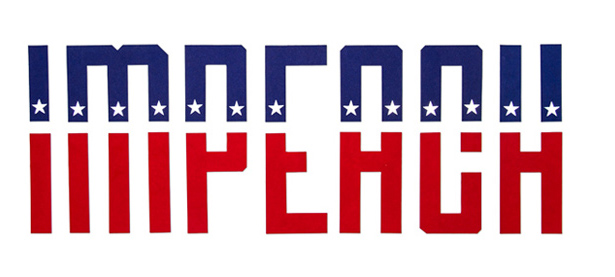Word Play What's in a Word
We don’t know about you, but we love to learn about words — their meanings, their origins, and how they shape our world. In each issue of Response, we ask a campus expert to explore a word related to the magazine’s theme.

By Caleb Henry, SPU Associate Professor of Political Science | Illustration by Dominique Falla
 “Impeach” is rooted in the Middle English empechen, meaning “to hinder.” America’s constitutional authors appropriated this English legal concept when seeking to hinder corrupt politicians. American impeachment amalgamates law and politics and exemplifies the ambiguities surrounding political power.
“Impeach” is rooted in the Middle English empechen, meaning “to hinder.” America’s constitutional authors appropriated this English legal concept when seeking to hinder corrupt politicians. American impeachment amalgamates law and politics and exemplifies the ambiguities surrounding political power.
Impeachment is an extension of separation of powers and a tool given to Congress to protect against political and legal corruption. The House of Representatives has the “sole power” of impeachment. After an impeachment, the Senate has the “sole power” to try the impeachment. Since a conviction requires a supermajority, the Senate has only convicted eight of the 17 who have been impeached.
This quasi-legal process has unusual tensions. The chief justice of the Supreme Court presides over the trial, but Congress establishes the procedural rules. As a result, the chief justice presides over a trial lacking typical trial procedure.
Congress has predominantly impeached judges — 15 in our nation’s history — but the most sensational impeachments have been of presidents. Andrew Johnson’s impeachment is the most constitutionally important. Republicans who disagreed with Johnson’s reconstruction policies viewed impeachment as a political issue. The Senate Republicans who successfully joined with Democrats in voting against conviction viewed impeachment as a judicial process. Interestingly, William Rehnquist’s book on this case was published in 1992, just seven years before Rehnquist, then chief justice, presided over then-President Clinton’s impeachment trial.
Bill Clinton was the next president to be impeached. (Richard Nixon resigned before the vote.) The House impeached Clinton, but the Senate refused to convict. Since no president has been convicted, some wonder whether impeachment actually curbs corrupt presidential activity. Others suggest that impeachment charges might be a sufficient deterrent.
Johnson’s impeachment reminds us of the difficult choices political leaders face. Republicans protecting Southern freedmen debated other Republicans protecting presidential independence. We should follow St. Paul’s recommendation: Pray for those in authority (1 Timothy 2:2).
